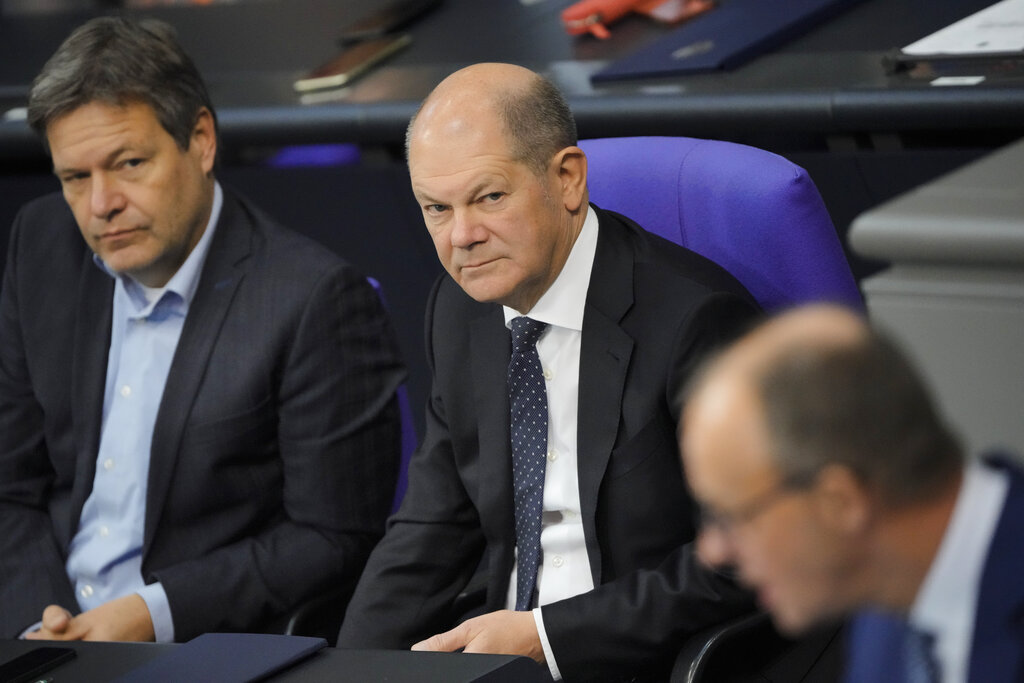German business organizations are criticizing the coalition government’s economic policies and calling for reform measures to put the country on a growth path and maintain Germany’s competitiveness as a manufacturing base, business portal Világgazdaság reports.
According to Siegfried Russwurm, president of the Federation of German Industries (BDI), German Chancellor Olaf Scholz is clearly underestimating the gravity of the situation.
Speaking to the Süddeutsche Zeitung newspaper about the time the traffic-light (red-yellow-green) coalition government has been in office so far, he said it was two wasted years, even if the wrong direction was largely set in the previous term.
Russwurm told the publication that the BDI is in regular talks with Economy Minister Robert Habeck and Finance Minister Christian Lindner. “We often hear from the chancellor that traders are always complaining,” he said; however, he accused Scholz of underestimating the seriousness of the economic crisis businesses are facing in the country.
Peter Adrian, president of the German Chambers of Commerce and Industry (DIHK), told the DPA news agency on Wednesday that there was a huge loss of confidence in politics among businesses.
Meanwhile, leading economic research institutes have lowered their GDP growth forecasts for this year, as they see a “headwind” for the German economy not only from the domestic market but also from abroad. Businesses are most concerned about the continuing uncertainty surrounding economic policy, according to the economists.
Marie-Christine Ostermann, president of the German Association of Family Businesses (Die Familienunternehmer), pointed out on Wednesday that decisions are being taken every day against Germany and Europe as a place to do business. Only 25 percent of internationally active family businesses are still willing to invest in Germany because of worsening location conditions, she said.
The four leading business representative organizations submitted a document containing 10 concrete reform proposals to Chancellor Olaf Scholz ahead of the last meeting in Munich at the beginning of March. “The response from the chancellor’s office was a big nothing,” Russwurm concluded. “Take the law to cut red tape, for which 442 concrete proposals have been submitted. The government has dealt with 11 of them,” he added.
Economic interest groups are calling for internationally competitive electricity prices, faster planning and licensing procedures, less red tape, and tax reform.
Scholz made it clear to them at the Munich meeting that he sees no financial room for a comprehensive tax cut. However, he cautioned them not to discredit Germany as a business location.






